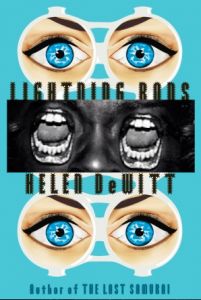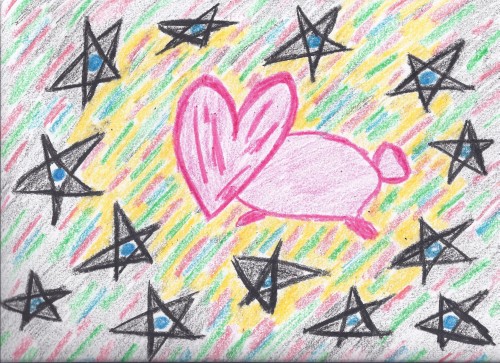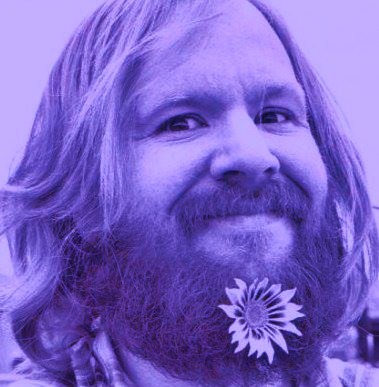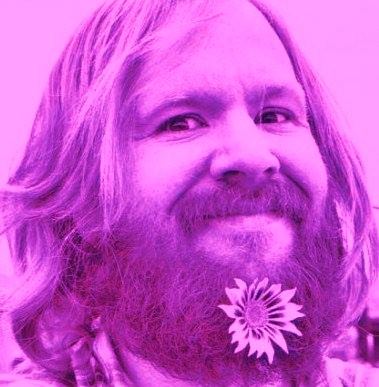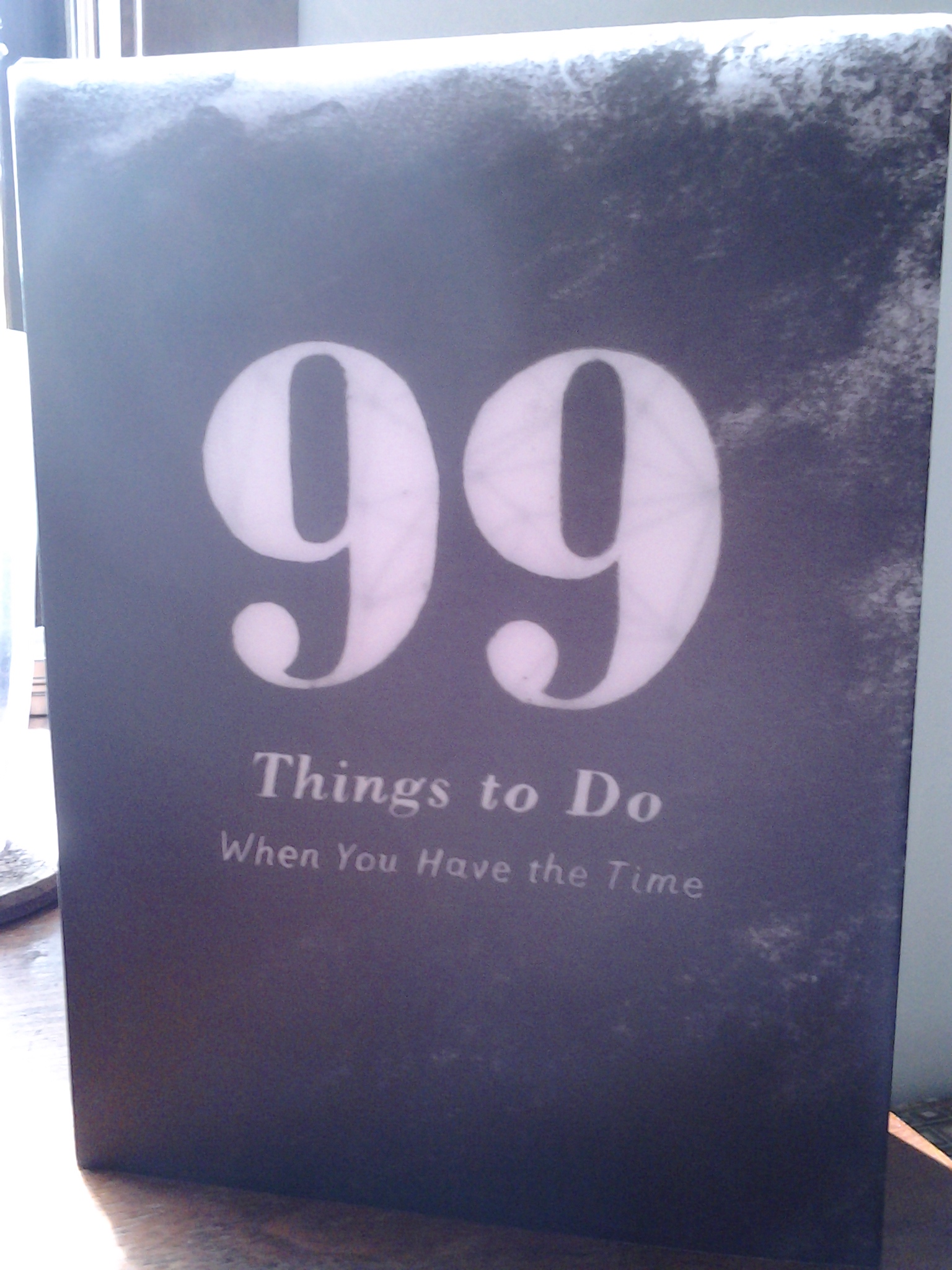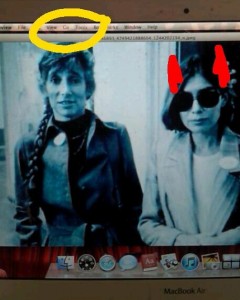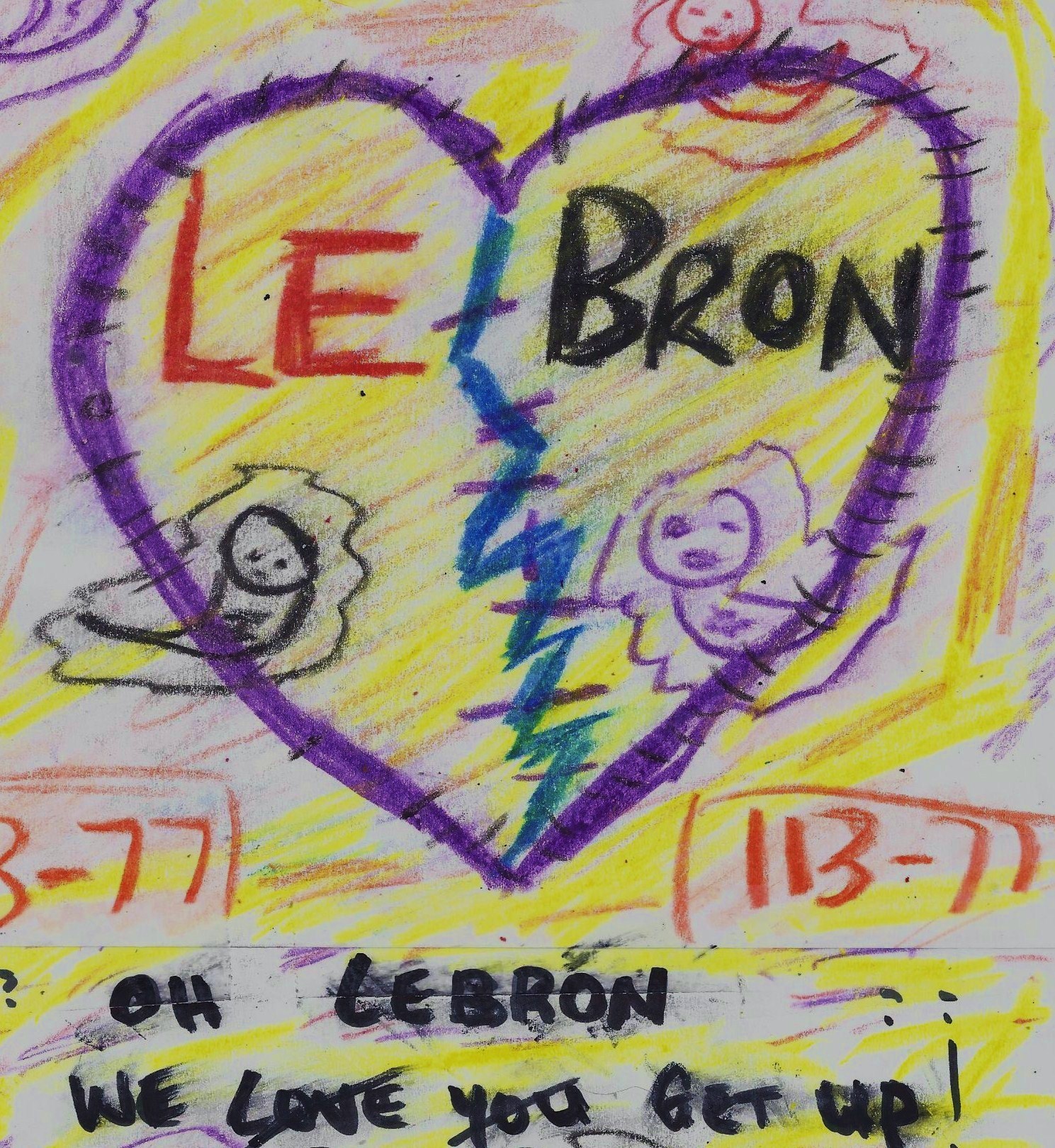A SMALL RESPECTFUL ARGUMENT WITH HELEN DEWITT, BUT WITHOUT HER
Last week when I emailed back an editor at a very fine, highbrow publication I responded to the way she closed her email by letting her know I actually have absolutely no intention of ever submitting my work to her again. She moved on to provide her apologies, which I guess should have placated me, but I kindly declined the apology, too. I forwarded the email exchange to a friend.
“You are crazy,” a friend responded.
I really like Helen DeWitt for many reasons, primarily because a friend, happening to be the very same one, once told me: “She is crazy. She gets in huge fights with her editors and doesn’t talk to them for years and wants her product to be exactly the way she envisions it.” If anything, I think that this is very not crazy at all; it makes the most complete sense to me that someone talented and verbally rigorous but never anything near verbose wants things the way she deems the most compelling. She edits herself more than enough, thank you very much.
There is a sentence somewhere [1] in DeWitt’s Lightning Rods asking: “Why does coffee never taste as good as it smells?” The question is a statement, and I do take it personally. Reading such a sentence fervently awakens my contrarian nature.[2] I have always liked coffee truly very much. As a child, I was undoubtedly the youngest one to bring coffee mugs to school, an action or habit eventually leading to phone calls to my parents from the school’s administration about how their son is a bad influence on other kids. Other kids wanted to drink coffee too. I was a trendsetter! How did the other kids know that it was coffee that the drink was in my silver traveller’s mug? It was the scent. The caffeinated aroma. The way its hot steam perpetrated the sterile educational environment. It smelled good.
A friend [3] once told me that there are only two ways to enter our bodies: sex and food. She then talked about abjection, but I kept thinking about our smells, smells and how smells too can be warm.
I have given it a lot of rational, logic-oriented thought and I have decided the reason I began drinking coffee was its warmth. It is possible that the average–or actually the median–reader assumed this would have been about the taste and how things are delicious and the flavor trip to Ethiopia and Costa Rica. But it is not, it is about warmth. The median reader–but definitely not the average reader, because the average does not think about things this much, if we are willing to be honest–wonders why coffee’s warmth is better than Nesquik’s. I would disagree, respectfully, with this median reader because there is a textural warmth to coffee that hot Nestle chocolate will never get near to at all. [4] In conclusion, I think coffee is always as good as it smells. Sometimes, my problem with coffee is that its warmth cannot be paralleled by its aromatic odor, or anything else at all.
Even if I disagree with Helen DeWitt on this tiny little section, I do think everyone should read Lightning Rods. The book is all about finding warmth, without at any point being warm itself. It is a book full of scents, but in the end I think we could all agree what is best is the possibility of warmth, even if it seems impossible.
NOTES
[1] The somewhere being page 71 if one needs be precise, read that page after reading 70 to achieve the optimal reader’s satisfaction.
[2] Recently, or at least not very long ago, I was questioned extensively and aggressively about this character flaw of mine. The largest issue I had with the accusation was the intrinsic flaw in denying it. My immediate paralysis in realizing that presenting a cajoling case was impossible was a relief. Internally I disagreed, but externalizing my disagreement was beyond the point, or actually it was the point, exactly.
[3] Still exactly the same friend in all cases. I guess we are close, or this piece would imply so.
[4] Not much later in my life my parents started receiving calls about how I was a bad influence on other kids: they, too, wanted to smoke. In my defense, I only did it because it kept me warm and made the coffee smell better, especially as its smell pertains to its warmth. My mom told the administration she has taught me well enough, thank you very much.
July 5th, 2013 / 11:16 am
Interview with Taylor Davis-Van Atta, Editor-in-Chief of Music & Literature
 I was recently introduced to the fantastic journal Music & Literature via their 2nd issue focusing on Hungarian writer László Krasznahorkai and filmmaker Béla Tarr, both obsessions of mine. I was excited to have the opportunity to ask Editor-in-Chief Taylor Davis-Van Atta about the project.
I was recently introduced to the fantastic journal Music & Literature via their 2nd issue focusing on Hungarian writer László Krasznahorkai and filmmaker Béla Tarr, both obsessions of mine. I was excited to have the opportunity to ask Editor-in-Chief Taylor Davis-Van Atta about the project.
(From their website:
Music & Literature is a 501(c)(3) charitable organization dedicated to publishing excellent new literature on and by under-represented artists from around the world. Each issue of Music & Literature assembles an international group of critics and writers in celebration of three featured artists whose work has yet to reach its deserved audience. Through in-depth essays, appreciations, interviews, and previously unpublished work by the featured artists, Music & Literature offers readers comprehensive coverage of each artist’s entire career while actively promoting their work to other editors and publishers around the world. Published as print editions (and soon to be offered as digital editions as well), issues of Music & Literature are designed to meet the immediate needs of modern readers while enduring and becoming permanent resources for future generations of readers, scholars, and artists.)
***
Janice Lee: Music & Literature is an exciting new project. Can you talk a bit about its inception and inspiration? I’m curious too about the very simple but semi-mysterious title? (For example, Issue 2 doesn’t seem to have very much music but a bit on film and photography.)
Taylor Davis-Van Atta: I sometimes think of Music & Literature as an act of frustration. It’s certainly a response to the longstanding shortage of high-quality arts coverage in English and, more recently, the austerity and cutting-back of coverage in our so-called traditional media. A lot of the arts review activity cut from newspapers has migrated online and proliferated there, and I often hear people say what a great thing this digital groundswell is, but I have to admit I find myself on the other side of this one… For the moment I’ll speak strictly about books and book coverage: while I can appreciate the benefits of a vast online book culture (broad coverage in terms of numbers of books, plenty of opportunity for young critics to strengthen their skills, etc.), the overall effect, it seems to me, is that a lot of attention may be drawn to the fact that a new book exists, but very little of quality and depth is actually written about the book. Add to this that discerning book and arts criticism has, for some time, been increasingly sequestered to the realm of academic journals—which are written and edited by academics, for academics—and I would argue that there is a missing class of accessible, smart, enjoyable critical literature available today to people who really love and wish to engage deeply with contemporary art.
All of this is just general talk, but maybe what I’m driving at (if anything) is this: if we agree that great art is inexhaustible, I think we need a class of literature that meaningfully engages that art, that offers new in-roads and allows us to explore the dark, recessed chambers of a book or symphony or film so we might see and experience it anew—or that simply provides the opportunity for us to discover an artist or piece of art we haven’t encountered before. This is the need we’re trying to address with Music & Literature. None of this is to say there aren’t venues—print and online—providing high-quality critical literature (I’ll not name names, since I’m bound to forget a few), but none that I’m aware of focus so intently as Music & Literature on providing art lovers with comprehensive, deep, and creative coverage of artists’ entire careers.
Since its inception, I have considered Music & Literature to be an arts magazine, broadly defined; that is to say, I’m interested in publishing all forms of art (and work about all forms of art)—and the more cross-pollination the better. While Issue 1 features two writers (Micheline Aharonian Marcom and Hubert Selby, Jr.) and a composer (Arvo Pärt), and Issue 2 features two giants of Hungarian art (writer László Krasznahorkai and filmmaker Béla Tarr) and a painter (Max Neumann), in each issue (and in future issues) readers will find, say, Noh theatre being discussed alongside the architectural nature of graphic scores, the musicality of an author’s prose discussed alongside the literary implications of a painting, and so forth. Though we chose not to feature a composer in Issue 2, the volume nonetheless contains quite a lot of musical material, including one of Krasznahorkai’s translators, George Szirtes, on the musical complexities of Krasznahorkai’s prose and the difficult pleasures of rendering them into English, as well as a discussion of opera and the nature of evil between Krasznahorkai and composer Péter Eötvös, and more… All forms of art are in constant dialogue with one another, and, for the individual, the experience of great art is the same regardless of the form that art takes: pleasure. For example, we marvel at the ingenuity of architects who reinvent space and encounter, but wither in buildings and structures that create anxiety. It doesn’t take much to intuit the parallels between uninspired architecture and uncreative music, for instance, because all art forms exercise our critical faculties. We enjoy it when our intellects are stretched and challenged: it’s the same part of us that revels in a great musical performance that is awakened by an architectural space that recognizes the human condition and works to incorporate and engage the individual.
As you know, I was first introduced to Music & Literature via Issue 2 (Krasznahorkai / Tarr / Neumann) when a friend of mine brought my attention to it. I was so excited to see both László Krasznahorkai and Béla Tarr as the focal points of a journal, as I’m working through these two figures in both my creative and critical work. What brought you to focus on these three figures for this issue? I’m especially curious since your website states your dedication to publishing work “on and by under-represented artists.” Do you feel these three are still “under-represented” as artists today?
As I suggest above, even the books that dominate chatter in the literary realm receive such little quality critical attention, much less resonate out into the broader culture. Despite some modest attention recently, I do think that Krasznahorkai and Tarr remain very much under-represented. Even if their names are recognized, their art remains largely obscured. This can be said, I believe, of all the artists we feature in Music & Literature. Micheline Aharonian Marcom, Max Neumann, Vladimír Godár, and Maya Homburger are known by very few, and their art resides in virtual anonymity.
REDEMPTION TWO: BETTER THAN EVER OR BETTER OFF DEAD?
In this mini-series the saga of redemption, as frequently manifested in the form of “comebacks,” is investigated. REDEMPTION ONE is here.
In honor of Lindsay Lohan’s birthday, REDEMPTION TWO arrives early.
II. EMPIRICAL EVIDENCE
a. Better Than Ever: Two Cases of Successful Redemption
ANTHONY WEINER
If anyone successfully gave more than enough of himself to the public, it was Anthony Weiner. With explicit twitpics some of us never saw and some of you will never forget, the former congressman’s actions led to a shameful resignation following the virtual “unfaithfulness” to his spouse, Huma Abedin[1]. Weiner did not code the public humiliation of his private life as the ending of his career. On the contrary, he interpreted, and continuously interprets, his public mistake as an opportunity for future growth and greater strength.
The married lives of politicians have always been crucial foundations to their public perception. An extensive cover interview for NYT Magazine in April depicted Weiner and Abedin’s marriage as a normal one, still recognizing the vast impact of the incident on their marriage. Particularly, the demise of the power-couple as it was in quest of a private truth–whether Weiner’s account was hacked–became the first step to achieve a private, family-based redemption. After returning to trust privately, the next challenge for the couple became reaching the redemption that would mark its return to political respectability and place Weiner’s wrongdoings in the past.
Following the scandal, Weiner’s course of action has primarily worked to his advantage, at least according to the press. He asserted that the reason he initially lied was to avoid telling Huma. Once the lie was undeniable, he owned up to his mistake by attributing it to an obscure, but under no circumstances unrealistic, cybersex habit. The fact that he did not realize the sexual acts in question, but constrained himself to the imaginary, undoubtedly ameliorated the position he found himself in following the event. READ MORE >
Dear Rauan,… (1)
*****
[ this is the 1st installment of my “Dear Rauan” advice column. special thanks to Kim Gek Lin Short for reminding me that I can and should “help people” ]
*****
So, anyways, without further ado, here’s Sue, from the Midwest:
dear rauan,
i hate when men yell from cars “god! i’m so horny!” sometimes when i am walking to Rite Aid to buy Otter Pops because it helps with side effects of global warming, i hear men screaming “god! i’m so horny!” READ MORE >
Publishing In Print Literary Journals Is Useless
Between watching my eight-month year old son try and cram his fist into his mouth (teething) and stuffing envelopes at work for eight hours a day (busy work), the following question wouldn’t leave my head: what’s more important in the “world of writing” (sorry, can’t word this any better) – publishing in print literary journals or establishing a following online? Does anyone care about your new piece in the Iowa Review? Can’t you publish online in small journals and build up a following through places like twitter and facebook and reach a wider audience?
Let me back-up.
I recently received more feedback online from posting a picture of Lays potato chips than publishing a story online. It took me approximately one minute to photograph the potato chips and post to instagram, while the short story, estimating drafting/editing/submitting, took approximately ten hours. It was this juxtaposition that triggered the question above. I understand the two aren’t necessarily connected, but it’s interesting to question the contemporary importance of traditional literary print magazines in a world where even writers are obsessed with online promotion where many of the things they randomly say/do on twitter/facebook/instagram/tumblr gets them more attention.
Who cares about literary journals when a writer can publish work on their tumblr/blog, gain followers from being funny/weird, and spark conversation and interest that way? Does it make sense to spend hours researching print literary journals, submitting, waiting months to hear back? And if your story does get printed in the journal, does anyone read it? The possibilities to reach an audience with your “art” are easier, faster, are larger in scale, than ever before because of social media and blogs looking relatively professional and not like a pimped out and re-colored geocities site. What I’m trying to say is that there’s new avenues to reaching audiences, and these new avenues seem to be reaching and swallowing up the old like the standard print literary journal.
I understand that publishing your story in a print literary journal can be rewarding and prestigious and build your resume, and all that. Sure. Okay. Good for you. But what if you get more feedback, reach a wider audience, and I don’t know, maybe attract the attention of other editors by posting your story online and tweeting it out?
Maybe the question is absurd because I’m currently blanked-out on Lays chips. I’ve eaten three mini-bags today. I tried to think of who would have an answer and thought about other writers but other writers would be biased depending on where they fell on the scale (writer A has published in print journals and has an ego, writer B loves the online shit). I thought about agents. What would agents be more impressed by – a writer with the print journal pubs, or a writer with an online following? Would I just be laughed at? Probably.
I emailed the following question to a literary agent at a reputable firm (I actually emailed the question to a dozen agents, all of which ignored me with the exception of one, which seems and feels about right). I said that if she put up with my nonsense I’d post her responses anonymously:
When considering taking on a new writer, what carries more weight (besides the work itself) – a writer who has published in several print academic journals (ex: Denver Quarterly, Mid-American Review, Iowa Review) or a writer who has published in small/obscure journals with a large online following (ex: several thousand followers on twitter)?
Here’s the email exchange:
***
Agent: For me, since I represent many literary fiction writers, those print-journal credits are important. Getting published in a top-notch literary magazine means that a writer made it through a very competitive process, and was selected as part of a small group for that issue. That still means a lot to me in terms of building a literary fiction author’s career.
So, am I totally wrong in thinking a writers social media presence is stronger/more important than publications?
Agent: I don’t think it’s more important no, though I think it DOES depend greatly on what type of market they’re writing for and how big their audience in each format is. It certainly matters a lot for certain writers. But then there are folks like Malcolm Gladwell who doesn’t even Tweet.
Do you ever look at potential writers social media presence? What if a writer may not have any big market literary publications but they are gaining buzz through small online publications and, say, twitter?
Agent: That certainly counts for something, yes! It just doesn’t count for everything.
***
So those publications do matter, according to this agent, who I respect and has published authors I respect. I’m wrong in my initial assumption. I still think it’s an interesting question to think about, especially with the always discussed end-times of print, online pages and colors spanning outward over everything constantly. But publishing your epic prose poem in Kitty Fart Face Review and tweeting it out could still get you a lot of attention, right?
Save the Pit Bull! – Talking to Jereme Dean
Jereme Dean’s Facebook page is filled with macho, sexist and self-professed “asshole” comments. But mixed in are posts concerned with the environment, the socially and politically embattled, and, above all, posts asking, poignantly (with pictures), for people to save, or help save, a dog’s life: ie, a dog, usually a pit bull, that’s about to be euthanized.
What follows, then, are some questions I sent Jereme and the answers he sent back. The core of the interview is the Pit Bull (“most every dog I’ve posted about is dead”) but it is also Jereme Dean, his views on people, culture, the media, etc.
*****
Do you prefer dogs to people?
I wouldn’t necessarily say I prefer dogs over people but… have you ever witnessed a dog walking around in sweatpants and boots or making faux inspiration videos or quipping a passive-aggressive remark on some forum or writing a pre-school philosopy poem about beyonce? I haven’t. I appreciate their lack of language–their honesty.
Human beings are great while in the concrete world: fucking; fighting; dancing; crying. It’s their abstractions which creates a psychological division. Most people revel in the bullshit creations of the 21st century. I can’t relate.
I enjoy specific human interaction though, but not much. 4, maybe 5, people, total.
I do think dogs prefer my company, people not so much.
99 Things to Do When You Have the Time
In March of last year, I wrote a post here entitled “100 things to do when you have the time.” It proved popular and I was approached by a press, Compendium, Inc., with the offer to turn it into a book. I said sure and now the finished book is available through Compendium’s website as well as at various bookstores.
I worked with my editors to revise the list, which changed a lot (for instance, we lost a thing). After that, others transformed it into a book that’s just as much a journal as it is a list, with original art and design on every page. 99 Things wouldn’t exist without M.H. Clark and Amelia Riedler’s editing, Julie Flahiff’s creative direction, and Heidi Rodriquez’s design work—my sincerest thanks to all of them.
As well as to Michelle Tupko. I initially made the list for her, but after a while I realized I needed it just as much myself. And now it’s for everyone else, or for anyone who wants it. If you do check it out and find it useful, I’ll be gratified.
REDEMPTION ONE: BETTER THAN EVER OR BETTER OFF DEAD?
In this mini-series the saga of redemption, as frequently manifested in the form of “comebacks,” is investigated.
I. THEORY
a. Leadership & Empathy
The Boston bombings in April triggered a very strong emotional response from the American audience. As everyone was wondering what the circumstances and details that led to the violent actions were, the media used the usual humanizing technique it consistently has since I can recall being a part of its audience: individual sagas and personal stories were provided to increase the degree of empathy the viewers experienced.
Leaders–or individuals who desire to rise to a leadership capacity–have been cognizant of the powerful positive impact of engaging the audience’s compassion. In our epoque of suavely-impersonal communications that allude to convey a “personal” impression, the humanizing factor of public figures morphs into a vital quality. Gradually, a larger part of the audience recognizes that we often feel like we know others to a much grander depth than we actually do through their social media projections and the curated accessibility they provide. Suddenly, achieving a stronger human connection is ultimately integral in setting leaders and public individuals apart from their competitors.
The recent popular imagination has introduced a modern hierarchy in which potential leaders and public individuals become an inspiration for the masses. Rather than an alien image of perfection, the idea of the strong individual who learned from his/her mistakes seems like a newfound pattern in reaching previously unattainable levels of respect. A routine of redemptional strategies has become commonplace in helping individuals progress to higher positions. The mistakes or faults ultimately yield an advantageous result by making them more “human” and easier to identify with as authority figures. The degree of empathy they manage to garner from the audience is relative to their declaration of a new status which clearly pronounces their existence as void of their prior faults. Under such circumstances, where individuals sought change, their mistakes even add to their charisma and personality. Having demonstrated sensitivity humanizes them; being able to surpass the stigma legitimizes their leadership potential. READ MORE >
O, Lebron
********************
I know it hurts, dude, but let me tell you about this puffball sitting in white sunlight in the middle of nowhere. And I inject this puffball into your neck, balls and butt. And you fall on to your hands and knees. And you’re soft and suave as a Pomeranian barking up philosophies, experiences, Robert Hass’s silkiest poems (and I wish I’d rescued you from a fairy tale). And you don’t stop.
********************
I am, though, standing in front of the mirror. And I’m holding a bowling bowl. And I smash my face with it. . . And I am you, LeBron James (blah, blah). . . And I haven’t written a sonnet in a thousand years (blah, blah). . .Pigs are buried, dancing, in every second. . .Blood lashed on the hardwood. READ MORE >
Top Three Suicidal Gods

3. Mercury
Mercury, god of commerce and poetry, discovered that for most of the contemporary world, he was just the basis for a class of comic book superhero who ran fast everywhere and defeated terrible, terrible villains by running fast at them and away from them. Mercury, who like commerce and poetry, was of an erratic personality type, slumped into a despondency and decided it would be best to not be at all. Mercury decided to run himself to death, and so he found a long, flat place, and connected one end of it to the other, and made a twist in the center. It became a möbius strip. Mercury ran and ran and ran, waiting in motion for his legs to buckle and his heart to burst. For the knitted together sections of his heart to expand and contract faster and faster until they pulled themselves away from each other and splatter blood inside his chest. READ MORE >

